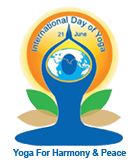G20: RESEARCH AND INNOVATION INITIATIVE GATHERING (RIIG)
India will strive to maintain the continuity of the inter-year agenda under the Research Ministers Meeting as it will assume the presidency of G20 this year. Taking into consideration previous RIIG meeting topics, it has been recommended to select a broader connecting theme for G20 discussions in 2023. Accordingly, 'Research and Innovation for an Equitable Society' has been selected as the central theme, which aims to promote cooperation among G20 member countries and to focus on ways that scientific research and innovation can be used to promote social justice and economic equality.
The interactions between science and economy are seen as crucial for achieving an equitable society, and the RIIG and S20 Meetings provide a platform for stakeholders to share ideas and form new partnerships. The government's focus on designing frameworks that generate new markets and sustain macroeconomic growth enables the research and innovation ecosystem, but more efforts are needed to extend the benefits to achieve socio-economic equity.
The Research and Innovation Initiative Gathering (RIIG) aims to address the challenges of achieving socio-economic equity through research and innovation. It proposes the establishment of a G20 Working Group on Research, Innovation, and Equity, which would bring together leading economic powers to address these challenges.
The goal is to promote international scientific cooperation and develop sustainable solutions for science-driven equity, by sharing best practices, collaborating on research projects, and developing policies to promote equitable access to the benefits of research and innovation.
MoES and RIIG:
The Ministry of Earth Sciences is honored to host one of the Research and Innovation Initiative Gathering (RIIG) meetings for the G20 Engagement Group at Diu on May 18th and 19th, 2023. The Department of Science and Technology (DST) is the coordinating department for G-20 RIIG meetings, and a total of five meetings will be held under the RIIG initiative, including an inception meeting and a Summit. The theme for the RIIG meeting in Diu is "Scientific Challenges and Opportunities for a Sustainable Blue Economy."
This theme was carefully selected in order to address the important issues related to the sustainable use and management of ocean and its resources. The meeting will bring together leading scientists, policymakers, and industry experts from around the world to discuss the latest research and innovations in this field, and to identify ways to promote a sustainable blue economy that benefits all nations and peoples.
The RIIG meeting in Diu, hosted by the Ministry of Earth Sciences, will play a crucial role in promoting sustainable development on a global scale by providing a forum for G20 nations to exchange their knowledge, expertise, and successful strategies.
Scientific Challenges and Opportunities for a Sustainable Blue Economy:
The Ministry of Earth Sciences in India is leading the effort to implement a Blue Economic Policy, which aims to protect and conserve ocean resources to ensure sustainable development. The policy is part of India's broader vision for the next decade and is identified as the sixth dimension of growth. The policy will focus on areas such as the development of ocean climate change advisory services to address climate resilience, exploration and conservation of deep-sea biodiversity, development of technologies for harnessing ocean resources, and capacity building.
The Ministry of Earth Sciences is also implementing the Deep Ocean Mission, which includes six thematic areas to support these Blue Economy initiatives. Additionally, it is estimated that nearly 40 million people are employed by ocean-based industries in India. Therefore, this topic is of importance as several G20 nations are also developing policies for a sustainable blue economy.
RIIG Meeting on Scientific Challenges and Opportunities for a Sustainable Blue Economy: Draft Schedule
Date: 18-19 May, 2023
Venue: Diu, India
18 May, 2023 (Day 1)
Session No. 1: 0900 Hrs to 1015 Hrs
The Ministry of Earth Sciences will preside over the session that will introduce the primary theme of the RIIG Meeting, "Scientific Challenges and Opportunities for a Sustainable Blue Economy," at Diu. This session will provide a platform to discuss the various scientific challenges and opportunities that are pertinent to the development of a sustainable blue economy.
The sub-themes of the meetings shall include the following;
● Session No. 2: 1030 Hrs to 1120 Hrs
Blue Economy Sectors and Opportunities
The Blue Economy includes sectors such as fisheries, aquaculture, offshore renewables, oil and gas exploration, seabed mining, blue biotechnology, and marine and coastal tourism, which are important for economic growth. A sustainable Blue Economy must have a framework in place to recognize and accommodate the values of nature that support social and economic well-being.
● Session No. 3: 1120 Hrs to 1210 Hrs
Marine Pollution
Marine pollution, caused mainly by land-based activities, has become a major global concern, with plastic waste being a significant contributor. The United Nations has set a goal to reduce marine pollution by 2025, with a focus on plastics and microplastics. The UN's Sustainable Development Goal 14 calls for the conservation and sustainable use of oceans and marine resources. To address this issue, a strong policy involving multiple stakeholders is needed to eliminate plastics and reduce marine litter.
● Session No. 4: 1210 Hrs to 1300 Hrs
Marine Living Resources and Biodiversity
Marine protected areas (MPAs) are crucial for preserving marine biodiversity and ensuring sustainable use of the ocean's resources. The SDG 14.2 goal is to declare 20% of exclusive economic zones as MPAs by 2030. Effective management of fisheries and protection of the marine environment from pollution and destructive actions are key actions needed to achieve this goal.
● Session No. 5: 1400 Hrs to 1450 Hrs
Observations, Data and Information Services
Ocean and coastal observations, data, and information services are important for all stakeholders in the Blue Economy. Services such as fishery advisories, ocean state forecasts, early warnings for tsunamis and storms, and alerts for oil spills, water quality, coral bleaching, harmful algal blooms, and coastal vulnerability are necessary for enhancing safety and sustainability of coastal communities and maritime operations, and managing ocean and coastal ecosystems.
● Session No. 6: 1450 Hrs to 1540 Hrs
Coastal and Marine Spatial Planning
Coastal and Marine Spatial Planning (CMSP) is a method of analyzing and managing the use of coastal and marine areas using science. It involves creating "ocean zoning" by mapping marine space for specific uses, similar to how land zoning regulates land uses. This approach helps address ocean management challenges and advance economic development and conservation goals.
● Session No. 7: 1555 Hrs to 1700 Hrs
Coastal and Deep Sea Mining, New and Renewable Offshore Energy
The Ministry of Earth Sciences has identified the subtheme of Coastal and Deep Sea Mining, New and Renewable Offshore Energy as a core area of responsibility for leveraging the Blue Economy. This includes coordination, integration, and harmonization of initiatives in this sphere, identification of global best practices and innovative technology developments, while ensuring environmental sustainability. The challenges and lessons learned from G-20 Member States' experiences in implementing projects in this field will also be considered. The Ministry will also identify initiatives for capacity building in harnessing ocean resources and prioritize research areas.
● 19 May, 2023 (Day 2)
● Excursion Visits
The outcome of the G20 meeting on Sustainable Blue Economy will focus on fostering knowledge exchange among members. Discussions will center on how next-generation technologies can support policy and governance to enhance ocean biodiversity conservation and improve coastal and marine spatial planning. The current status of Blue Economy policies and plans among G20 members will also be reviewed. The principles for a sustainable and climate-resilient Blue Economy, which aims to sustainably protect and enhance the natural environment, as well as the lives and livelihoods dependent on marine resources, will be developed. Best practices and guidelines for the preparation of sustainable Blue Economy policies consistent with the SDGs will also be established.







 Ministry of Earth Sciences
Ministry of Earth Sciences














